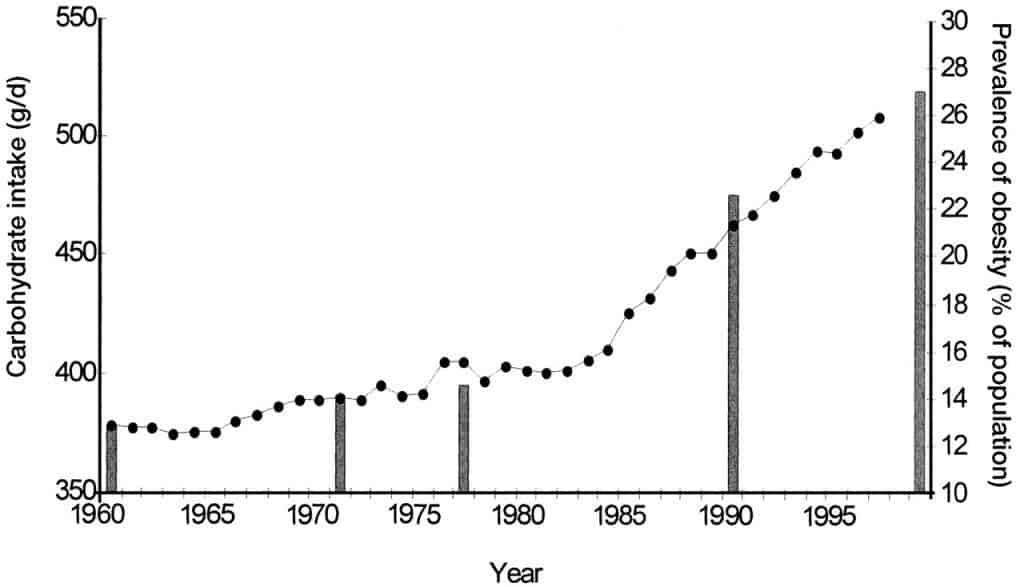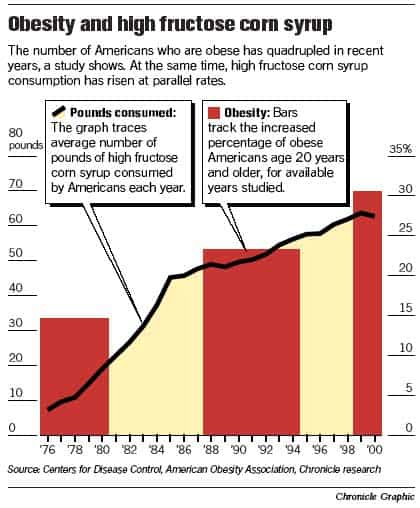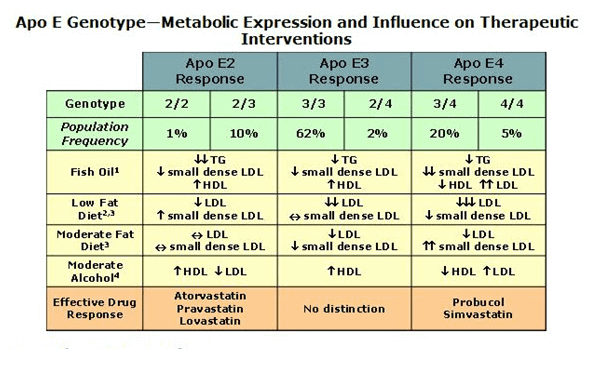New Study: High-Fat Paleo Inferior To Low-Carb Diet
Cutting fat from your high-fat Paleo type diet leads to more fat loss than reducing carbohydrates, a US health study shows. Damn, another health “fact” reversal! Is it true?
THERE ARE some pretty smart guys who have built large Internet-based business on the shoulders of the high-fat Paleo Diet. I’m thinking Mark Sisson, Robb Wolf and Chris Kresser, not to mention the Bulletproof Executive, Dave Asprey, though he has his own slant on the Paleo Diet. (See the P.P.S. below.)
But now we have yet another sacrosanct health truth turned on its head with the publication of a new study in Cell Metabolism that regenerates the old saw that low-fat diets are better for weight reduction than low-carb diets.
(Somewhere, Nathan Pritiken is high-fiving someone!)
So, which is better for getting you lean and keeping you that way, a low-fat or low-carb diet?
I’m going to tell you… read on…
For those of you who have been huddled in a cave with your much-missed, range-roaming ancestors, high-fat diets have become the rage, kinda, with the growing popularity of the Palo Diet in conjunction with CrossFit, the practitioners of which seem to be mostly of the Paleo persuasion.
The basic premise of the Paleo Diet is that you eat the way people did before the development of agriculture. That pretty much meant that people back then ate whatever they could capture, whether it be an animal, tuber or blueberry.
Animal meat has lots of protein and fat, tubers and fruit have carbohydrates, so assuming that our wily ancestors could get a balanced plate of these regularly, they consumed the three macronutrients of fat, carbs and protein, as we do today.
But the major difference between those three macronutrients of the Paleo era and today are the carbohydrates. (Yes, the meat protein and fat are now different too, but the focus right now is carbs.) Today, high glycemic forms of carbs are everywhere – in nearly every fast food, packaged, newly created “food” and drink, and they have taken a toll on the health of Americans and everyone else in the industrialized world.
“High glycemic carbs” refer to the type of carbohydrates that are quickly absorbed into our blood stream, thus rapidly spiking our blood sugar. Common foods and drinks we consume that do this are white bread, white pasta, white rice, corn tortillas, potatoes, fruit, fruit juice, sodas and alcohol.
The reason eating these and other high glycemic carbs can become a problem is that our insulin becomes desensitized.
Insulin is the hormone that lowers blood sugar, and shuttles and stores glucose (sugar) into fat, liver, and muscle cells. When our body is frequently flooded with excess insulin, cells can become resistant, or desensitized, to its effects, eventually leading to Type 2 diabetes and obesity.
In the article, What’s Making Us Fat and Sick, I wrote that the correlation between America’s ever-expanding girth and the onset of fabricated, carbohydrate rich foods and drinks was in complete lock step.
Two Graphs Tell A Compelling Anti-carb Story
A story of a thousand words (at least) depicted in two graphs.
Americans Obesity Increases with Carbohydrate Consumption
As you can see in the first graph above, the percent of the American population that were obese was fairly level from 1960 until the begging of the ‘70s when there was a surge in low-fat manufactured food. By 1983 the slope of that graph line started getting steep, indicating that carbs consumed and obesity were rising together, arm-in-arm.
The last data point in the first graph above was in the year 2000 and shows that 26% of the U.S. population was then obese. It’s more now. In 2012, the CDC put the number at 35% for adults over 20 years of age. (1)
To compensate for the reduced flavor of the low-fat foods, food manufacturers added cheaper, sugary items like high fructose corn syrup, the subject of the second graph above.
In the second graph, notice how the percentage of Americans becoming obese tracks with the number of pounds of high fructose corn syrup was consumed.
Startling!
At this point, you have really good reasons to think that carbs are the bane of civilization, and those Paleo people are really smart to sprint back to cave cuisine.
Some scientists think that doing so might even prolong your life.
Prolong Your Life By Cutting Carbs?
Scientists who study metabolic physiology have learned that insulin response may be linked to the expression of genes that control aging. (Read the PubMed abstract.)
Professor Cynthia Kenyon, a geneticist from the University of California, San Francisco, tweaked some worm genes, and – voila – this millimeter-sized worm species, Caenorhabditis elegans, lived up to six times longer than usual, as reported by Jerome Burne for MailOnline.
Now, you’re probably thinking that you’re a bit different than a millimeter-sized worm. You’re taller, for instance, and less wiggly. But the genes Professor Kenyon found that control aging in worms do the same thing in rats and mice, probably for monkeys, and we humanoids as well.
If that’s true, then what works for the worms may work for us, and that means reducing the carbohydrate component of total calories ingested from your daily mix of macronutrients is a good thing to do.
In her worm experiments, Professor Kenyon cut their calories by three-quarters and thereby changed two crucial gene behaviors. The first gene the calorie reduction changed controls insulin. Once altered, that gene in turn switched on another gene, which “acted like an elixir of life”.
“‘We jokingly called the first gene the Grim Reaper because when it’s switched on, the lifespan is fairly short,’ she explains. The second ‘elixir’ gene seems to bring all the anti-ageing benefits — its proper name is DAF 16, but it was quickly nicknamed ‘Sweet Sixteen’ because it turned the worms into teenagers.” (2)
OK, sounds great, but those poor starved worms are caught in petri dishes and have no choice but to be semi-starved given that three-quarters of their normal calories are eliminated. But just try that with us free roaming bipeds – we’ll make Caligula’s tyranny look like a walk in the park if deprived from a decent meal.
Could there be another way to get some life-extending benefits without untenable caloric deprivation?
How about reducing carbs, but by not so much that total calories decline anywhere near three-quarters?
Professor Kenyon thinks reducing the consumption of carbohydrates, particularly those of the high glycemic variety, is a good longevity tactic. That’s because carbohydrates make our body produce more insulin (to mop up the extra blood sugar that carbs produce), and more insulin means a more active “Grim Reaper” gene.
If this happens, the ole “Sweet Sixteen” gene gets turned off, and with it goes the capacities it ignites, such as boosting compounds that ensure skin and muscle-building proteins are working properly, a more robust immune system and turning off cancer-promoting genes.
Professor Kenyon is so convinced that reducing carbs will work to promote longevity that she’s overhauled her own diet:
“Carbohydrates, and especially refined ones like sugar, make you produce lots of extra insulin. I’ve been keeping my intake really low ever since I discovered this.
I’ve cut out all starch such as potatoes, noodles, rice, bread and pasta. Instead I have salads, but no sweet dressing, lots of olive oil and nuts, tons of green vegetables along with cheese, chicken and eggs.
I’ll have a hamburger without a bun and fish without batter or chips. I eat some fruit every day, but not too much and almost no processed food. I stay away from sweets, except 80 per cent chocolate.”(2)
But The New Study Says That Low-fat Is Better?
At this point you may be thinking that a pretty good argument’s been made to reduce carbs, particularly of the high glycemic variety. But what about that new study published in Cell Magazine that shows that those that reduced the consumption of fat lost more weight than those that reduced the same amount of carbohydrate calories?
Yes, this is yet another example of a health tenet being stood on its head.
In the years leading up to the 1970s, we were told that consuming dietary fat makes us fat, and food manufactures scrambled to provide us with fat-free everything. These manufactured foods had less fat, but made up for less fat by adding much more carbs to the food, especially high fructose corn syrup. Decades later, the data in those graphs above got digested, and we learned that we just got fatter eating all those carbs. We were then told that it’s not eating fat that gets us fat, but the carbs. Now, the study published in Cell Metabolism asserts that:
Calorie for Calorie, Dietary Fat Restriction Results in More Body Fat Loss than Carbohydrate Restriction in People with Obesity.
Dr. Kevin Hall from the National Institutes of Health (“NIH”) led the study. He had accumulated a large amount of data that informed his hypothesis that -– in contrast to the popular viewpoint of Paleo advocates — low-fat diets should technically be superior to low-carb diets in long-term fat loss.
What Dr. Hall needed was an experiment to test the hypothesis formed by the data, so he recruited 19 obese human lab rats who were sequestered in a totally controlled environment so that everything they ate and did could be monitored.
This is what happened:
- For five days they all ate a balanced diet.
- Then half of the participants reduced their caloric intake of dietary fat by 30%.
- Half of the participants reduced their caloric intake of carbohydrates by 30%
- They all took a break for six weeks.
- Then each group switched sides – the dietary fat reducers reduced carbs and visa versa.
- Various tests measured chemicals they expelled, such as carbon dioxide and nitrogen, which revealed the kind of fuel the participants were using.
Here were the results:
- The low-fat group lost 463 grams of fat on average.
- The low-carb group lost 245 grams in the low-carb diet.
- Given these results and by some modeling magic, participants in the low-fat group were predicted to lose over six pounds more than those in the low-carb group in six months.
What Does the Low-fat Diet Study Is Better Mean To You?
Right now you may be thinking:
“I can either cut carbs live longer or cut fat and live thinner”.
Naw, I don’t think so. That’s one tough choice you need not make. Let’s dig into the study and find out what it really means.
First, remember that although it was strictly controlled (meaning participants weren’t sitting home eating away and then filling out a survey about what they ate), the study sample was small (only 19 people) and all were obese.
Would people of normal body composition have also lost more weight on a low-fat diet?
We don’t know because that wasn’t studied.
Second, although it is revealing that in the study a 30% reduction in calories from dietary fat produced more weight loss than a corresponding 30% reduction in calories from carbohydrates — placing added emphasis on the adage that “a calorie is not a calorie” — the type of carbs reduced were not identified.
Would the results have been different if the majority of the carbs reduced were of the high glycemic variety? Could that have produced more weight loss than the low-fat diet?
We don’t know because that wasn’t studied.
So, what should you do?
I think Dr. Hall’s advice is spot on (with three provisos):
In my view, this is a reality check. It does not invite us to go back to preferential fat-cutting, but it does invite us to get past the new folly of preferential carb-cutting. My hope is this study provides a nudge not from one nutrient fixation to another, but in that direction: Food, not nutrients.
Get the foods right, and nutrients, weight, and health tend to take care of themselves. (3)
These are the three provisos I’d add to Dr. Hall’s advice:
- The diet for you is the one that reduces unwanted weight, is healthy and you can sustain.
- Whichever you focus on reducing, be it dietary fat or carbs, do reduce your consumption of high glycemic carbs – you’ll be healthier for it, and if Professor Kenyon is right, you’ll live longer to boot.
- When you do plow into high glycemic carbs, consume them after you work out. To find out why, go here and scroll down to “Post-exercise Carb Loading”.
Now it’s up to you.
Naturally, if you mostly jockey a desk all day, get up and move. Start here.
Over and out.
P.S. Not to confuse matters, but we do have a genetic propensity to carb or fat-dominate diets based on our ApoE Genotype. If you’d like to learn more about what the table below depicts, read my article, What The Heck Is ApoE and Why Does It Reveal Your Perfect Diet?
P.P.S. I don’t have any low-fat diet books to recommend, but if you think that the low-carb, high-fat Paleo diet is right for you, read my articles, Is the Paleo Diet The Best and Make Your Diet More Vegan, Like It Used To Be. Also, those Paleo experts first mentioned have written books that may be of interest:
Last Updated on February 25, 2024 by Joe Garma










